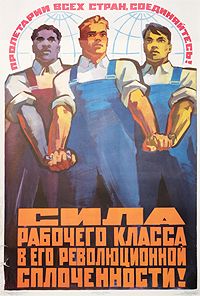Hezbollah's status as a legitimate political party, a terrorist group, a resistance movement, or some combination thereof is a contentious issue.
[377]
As of October 2020, Hezbollah or its military wing are considered
terrorist organizations by at least 26 countries, as well as by the
European Union and since 2017 by most member states of the
Arab League, with the exception of Iraq and Lebanon, where Hezbollah is the most powerful political party.
[378] In June 2024, the Arab League leadership has announced that it no longer views Hezbollah as a terrorist organization.
[379]
The countries that have designated Hezbollah a terrorist organization include: the Gulf Cooperation Council,
[380] and their members Saudi Arabia,
[381] Bahrain,
[382] United Arab Emirates,
[381] as well as Argentina,
[383] Canada,
[384] Colombia,
[385] Estonia,
[386] Germany,
[387] Honduras,
[388] Israel,
[389] Kosovo,
[390] Lithuania,
[391] Paraguay,
[392] Serbia,
[386] Slovenia,
[393] United Kingdom,
[394] United States,
[395] and Guatemala.
[396]
The EU differentiates between Hezbollah's political wing and military wing, banning only the latter, though Hezbollah itself does not recognize such a distinction.
[386] Hezbollah maintains that it is a legitimate
resistance movement fighting for the liberation of Lebanese territory.
There is a "wide difference" between American and Arab perception of Hezbollah.
[68] Several
Western countries officially classify Hezbollah or its external security wing as a
terrorist organization, and some of their violent acts have been described as terrorist attacks. However, throughout most of the
Arab and
Muslim worlds, Hezbollah is referred to as a
resistance movement, engaged in
national defense.
[107][397][398] Even within Lebanon, sometimes Hezbollah's status as either a "militia" or "national resistance" has been contentious. In Lebanon, although not universally supported, Hezbollah is widely seen as a legitimate national resistance organization defending Lebanon, and has been described by the Lebanese information minister as an important ally in fighting terrorist groups.
[68][399]
The
United Nations Security Council has never listed Hezbollah as a terrorist organization under its sanctions list, although some of its members have done so individually. The
United Kingdom listed Hezbollah's military wing as a terrorist organization
[400] until May 2019 when the entire organization was proscribed,
[401] and the
United States[402] lists the entire group as such.
Russia has considered Hezbollah a legitimate sociopolitical organization,
[403] and the
People's Republic of China remains neutral and maintains contacts with Hezbollah.[
citation needed]
[404]
In May 2013,
France and
Germany released statements that they will join other European countries in calling for an
EU-blacklisting of Hezbollah as a terror group.
[405] In April 2020 Germany designated the organization—including its political wing—as a terrorist organization, and banned any activity in support of Hezbollah.
[406]

en.wikipedia.org












